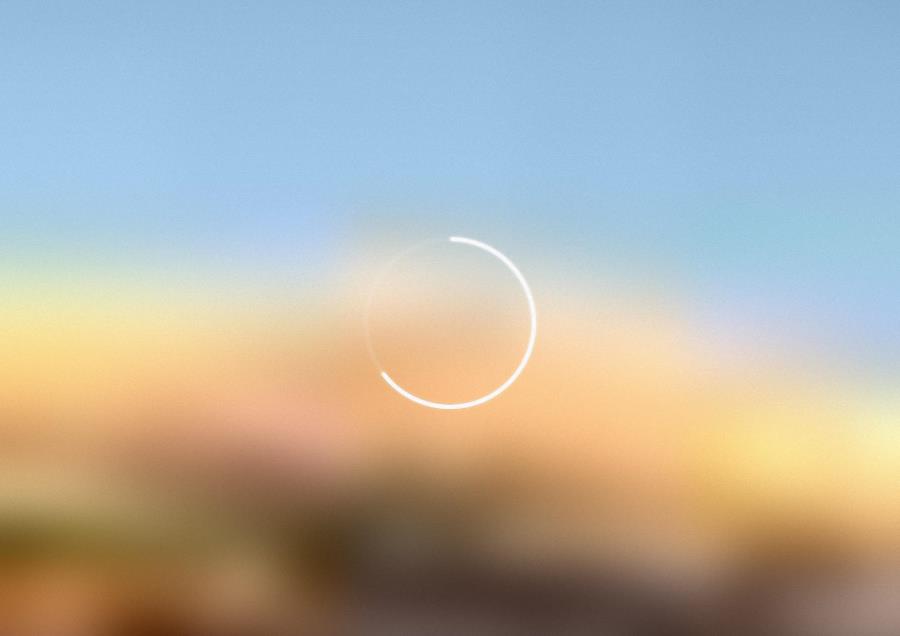Loading by Siri Hayes
Installation #10

Loading was created by taking screen grabs of Instagram loading in low reception areas. The images are a nod to the twentieth-century, modernist artist Mark Rothko in their abstract and painterly quality. A technological glitch is exploited for artistic purposes: these blurry images contain the essential schema of the image minus their identifying details. The ‘loading’ circle highlights the mechanical means by which the image becomes focused and ‘real’ and thereby point to their constructed nature.
Loading highlights how bound contemporary life is with photography. In the 1960s Susan Sontag wrote that tourists do not experience but rather mediate the places they visit through their cameras. Nowadays this notion has been transferred to everyday life, not just holidays; now if it isn’t photographed and uploaded to social media, it didn’t happen. Photography has become ubiquitous as technology has become synonymous with high-resolution cameras and the desire to ‘share’ life on social media.
Loading will be familiar to the many users of Instagram and intriguing to non-users. Removed from their Instagram feed and re-contextualised in the Carlton Library Light Boxes, the images are a reflection on contemporary life.
Siri Hayes has exhibited extensively both nationally and internationally since the early 2000s. Significant exhibitions include Future Primitive, Heide Museum of Modern Art, Melbourne; Melbourne Now, National Gallery of Victoria, Melbourne; Contemporary Australian Portraiture, National Portrait Gallery, Canberra; Tickle attack - Backlight Triennial, Turku, Finland; International Festival of Photography, Lodz, Poland; and Prix Pictet, Palais de Tokyo, Paris, France. Hayes has received numerous awards including the Olive Cotton Award for Photographic Portraiture and the National Photographic Purchase Award. Her work is held in over 20 national public collections as well as in prominent international private collections.
Loading by Siri Hayes was exhibited from 18 December 2018 - 20 March 2019.
Loading by Siri Hayes
Installation #10

Loading was created by taking screen grabs of Instagram loading in low reception areas. The images are a nod to the twentieth-century, modernist artist Mark Rothko in their abstract and painterly quality. A technological glitch is exploited for artistic purposes: these blurry images contain the essential schema of the image minus their identifying details. The ‘loading’ circle highlights the mechanical means by which the image becomes focused and ‘real’ and thereby point to their constructed nature.
Loading highlights how bound contemporary life is with photography. In the 1960s Susan Sontag wrote that tourists do not experience but rather mediate the places they visit through their cameras. Nowadays this notion has been transferred to everyday life, not just holidays; now if it isn’t photographed and uploaded to social media, it didn’t happen. Photography has become ubiquitous as technology has become synonymous with high-resolution cameras and the desire to ‘share’ life on social media.
Loading will be familiar to the many users of Instagram and intriguing to non-users. Removed from their Instagram feed and re-contextualised in the Carlton Library Light Boxes, the images are a reflection on contemporary life.
Siri Hayes has exhibited extensively both nationally and internationally since the early 2000s. Significant exhibitions include Future Primitive, Heide Museum of Modern Art, Melbourne; Melbourne Now, National Gallery of Victoria, Melbourne; Contemporary Australian Portraiture, National Portrait Gallery, Canberra; Tickle attack - Backlight Triennial, Turku, Finland; International Festival of Photography, Lodz, Poland; and Prix Pictet, Palais de Tokyo, Paris, France. Hayes has received numerous awards including the Olive Cotton Award for Photographic Portraiture and the National Photographic Purchase Award. Her work is held in over 20 national public collections as well as in prominent international private collections.
Loading by Siri Hayes was exhibited from 18 December 2018 - 20 March 2019.

